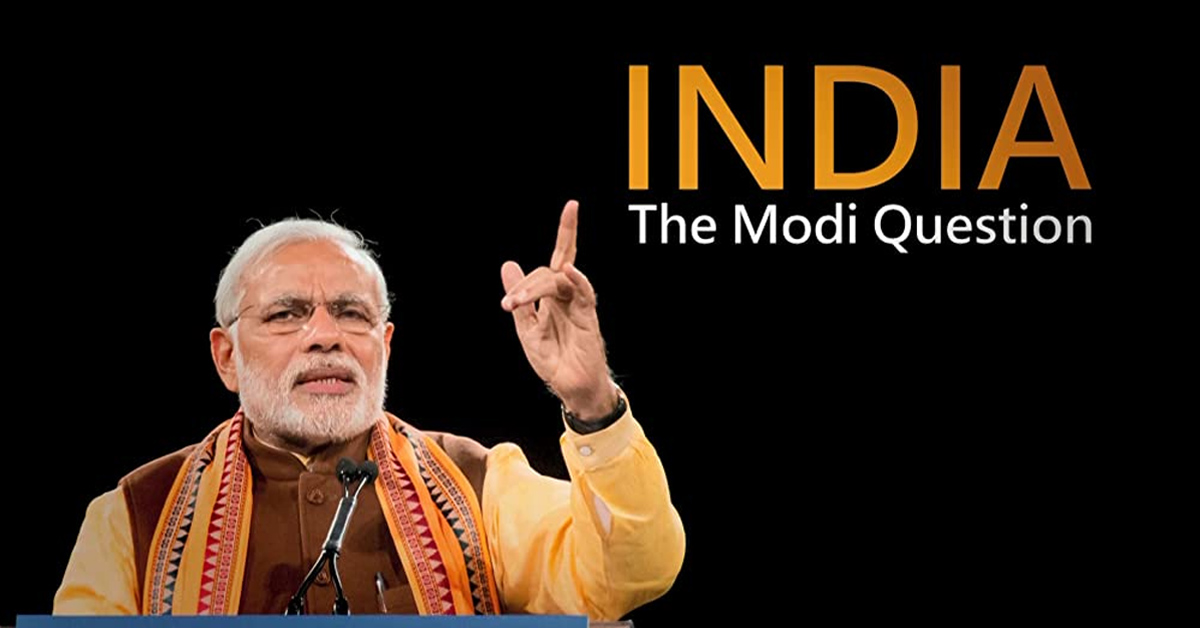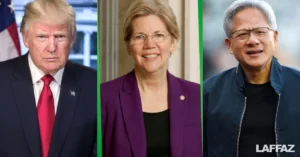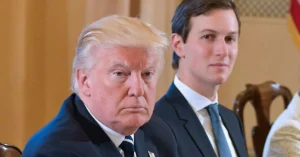ⓘ News Reports: BBC; Deccan Herald
Over a dozen students at Jamia Millia Islamia university have been arrested on Thursday ahead of a planned screening of a BBC documentary about the Indian Prime Minister Narendra Modi.
The documentary named ‘India: The Modi Question‘ looks at Prime Minister Narendra Modi’s actions during the 2002 Gujarat riots in which nearly 1,000 people died.
The first episode of ‘India: The Modi Question’, the two-part series – aired in the UK on 17 January. The second part was broadcast on Tuesday.
As per the film, India’s government has tried to stop the documentary from being shown. The government says that the documentary lacks objectivity and is “propaganda”.
According to various reports, the government has invoked emergency laws to block the documentary on YouTube and Twitter.
Dozens of police personnel wearing riot gear were deployed at Jamia university. Officials said they would not allow any “unauthorized gatherings”.
A BBC Hindi reporter at the campus said the university’s gates had been locked and described the atmosphere inside as calm. There was, however, a huge crowd of students and journalists outside. Videos showed dozens of police personnel standing in a line outside the locked gate.
On Tuesday, students of JNU, another university based in Delhi revealed that power and internet had been cut to stop them from screening the film.
Although the power cut prevented the public screening, JNU student leaders distributed QR codes so people could stream the video on their laptops and phones.
The university administration had asked the JNU students’ union not to screen the film, saying it could “disturb the peace and harmony of the university campus”.
India’s foreign ministry has criticized the documentary, calling it “a propaganda piece designed to push a particular discredited narrative”.
But the BBC has said the film was rigorously researched. A BBC statement said the series examines “the tensions between India’s Hindu majority and Muslim minority and explores the politics of Mr Modi in relation to those tensions”. It added that the Indian government was offered a right to reply, but had declined.
The first episode of the documentary tracked Narendra Modi’s first steps into politics, from his rise through the ranks of the Bharatiya Janata Party (BJP) to his appointment as chief minister of the western state of Gujarat.
It highlights a previously unpublished report, obtained by the BBC from the UK foreign office, which raises questions about Mr Modi’s actions during the religious riots in Gujarat in 2002 after a train carrying Hindu pilgrims was set on fire, killing dozens. More than 1,000 people, mostly Muslims, died in the violence, some of the worst seen in India since its Independence in 1947.
The report claims that Mr Modi was “directly responsible” for the “climate of impunity” that enabled the violence.
Narendra Modi has long rejected accusations that he had any responsibility for the violence caused during the 2002 Gujarat riots. In 2013, a Supreme Court panel ruled there was insufficient evidence to prosecute him.
Although the BBC documentary was not aired in India, several opposition leaders and government critics shared links to it on social media.
The Modi Government used emergency powers under the Information Technology rules 2021 to block multiple clips of the BBC documentary on YouTube and Twitter.
An adviser to India’s government said it had ordered Twitter to block tweets linking to the film, while YouTube had been instructed to block uploads of it.
Twitter confirmed to the BBC that it had blocked 50 tweets based on a request by India’s ministry of information and broadcasting on 20 January under the country’s information technology law.
A YouTube spokesperson said the video had been “blocked from appearing by the BBC due to a copyright claim”. A BBC spokesperson said: “As is standard practice, we follow the procedure to have illegal uploads of any BBC content removed.”
U.S. President Joe Biden’s administration has subtly expressed its disagreement with the decision of Prime Minister Narendra Modi’s government in New Delhi to get YouTube and Twitter to block links to a BBC documentary on the 2002 riots in Gujarat.
“We support the importance of a free press around the world,” Ned Price, a spokesperson of the US Department of State, told journalists in Washington DC on Wednesday.
“We continue to highlight the importance of democratic principles, such as freedom of expression, freedom of religion or belief, as human rights that contribute to the strengthening of our democracies,” said Price
“This is a point we make in our relationships around the world. It’s certainly a point we’ve made in India as well.” Price added
A notable statement made by Biden’s Secretary of State, Antony Blinken back in April 2022 was,
“monitoring some recent concerning developments in India, including a rise in human rights abuses by some government, police, and prison officials” said Blinken
He had made the remark while sharing the podium with Jaishankar; Defence Minister Rajnath Singh; and the US Secretary of Defence, Lloyd Austin during a news conference after the India-US 2+2 dialogue in Washington DC. He followed it up on June 2, 2022, stating that India, the world’s largest democracy and home to a great diversity of faiths, had seen rising attacks on people and places of worship.
He made the remark after releasing the US State Department’s 2021 Report on International Religious Freedom. Rashad Hussain, the US Ambassador-at-Large for International Religious Freedom, had also said at the same event that some officials in India were “ignoring or even supporting rising attacks on people and places of worship”.
The US State Department’s report also highlighted the purported rise in religious intolerance in India.
Biden, himself, as well as his Vice President Kamala Harris, had subtly nudged the prime minister to protect the democratic principles of India, when they had hosted him in Washington DC on September 24, 2021. The think tanks and nonprofit entities, as well as international organizations, too had been expressing concerns about the alleged erosion of democratic values in India.





